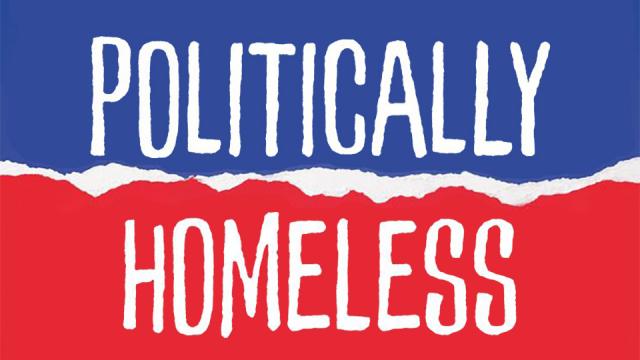
Matt Forde is confused about the mess British politics has become. A former political advisor and comedy writer, Forde is so disillusioned about the state of the UK’s political spectre that he’s written a book called Politically Homeless, which tracks how he managed to become a political vagrant himself.
Forde is not alone in finding himself stripped of a political party identity during one of the worst social and economic periods in modern history. Now, a question is emerging whether Britain could look to its southern neighbors, specifically the Podemos party in Spain, as a possible political model moving forward.
Labour’s undoing
Factions within the Labour Party are simmering. Party leader Keir Starmer’s decision to suspend the former Labour leader and Islington North MP Jeremy Corbyn, following his response to an Equality and Human Rights Commission’s report into Labour’s handling of anti-Semitism charges under his watch, triggered a tsunami of contempt from many devout Corbyn supporters.
A group of more than 30 MPs swiftly announced they would “work tirelessly” in support of Corbyn until the case was resolved. Armed with the hashtag #IStandWithJeremyCorbyn, a petition to reinstate Jeremy Corbyn surfaced almost immediately.
Seven leaders of trade unions affiliated with Labour, including Len McCluskey, composed a joint statement opposing Corbyn’s suspension. Starmer’s decision was condemned by Dave Ward, general secretary of the Communications Workers Union, who said it risked “plunge[ing] the Labour party into a civil war of its own making.”
Following a three-week investigation into Corbyn’s suspension, the Labour Party’s National Executive Committee ultimately reinstated Corbyn to the party. However, news that Starmer had blocked Corbyn from sitting as a Labour MP despite his readmission to the party sparked an even angrier backlash among Corbyn supporters.
The hostile treatment of the party’s former leader has left the left of the party facing its own “politically homeless” crisis. As the Socialist Worker reports: “The treatment of Corbyn – and the threat of disciplinary action that hands over anyone who contests it – indicates that Labour Party socialists won’t be allowed the space to argue and agitate that they enjoyed even under Blair.”
Now the question arises: will restless members of the party accept being muzzled and de-opinionated in the quest for “party unity”? Or will they unify their efforts and embark on an accord of insubordination in pursuit of upholding principles and beliefs?
A new direction
The notion of a new party being formed by socialists, progressives and others who feel politically homeless is gaining momentum among Britain’s left.
As one supporter of a new socialist party posted on Twitter: “With a right-wing-led Tory party, a neo-liberal Labour party, and the British MSM [mainstream media] working to keep it that way, we need a new socialist party ASAP.”
However, the prospect of a new left-wing party formed by discontented progressives, many of whom identity themselves as “Corbynites,” has been met with scorn and derision, mocked by some as a “waste of time” and a move that would give Tories an “eternal majority.”
But before ignoring the prospect of a new socialist party being born out of the growing faction of Britain’s “politically homeless,” it would be useful to look at the Podemos party in Spain and its achievements as left-wing underdogs.
Podemos (We Can) was founded in 2014 by the then-35-year-old political scientist Pablo Iglesias Turrion. The party was formed in the wake of the 15-M Movement protesting corruption and inequality.
Barely 100 days later, Podemos, which called for an end to austerity, had emerged as the third largest political force in many parts of Spain, including Madrid, where it won five seats, and secured 1.2 million votes in Spain’s European elections.
In 2016, Podemos joined the United Left, a political coalition that was organised in 1986, and Equo, founded in 2011 with the merging of 35 different Spanish green parties. The party has subsequently been renamed United Podemos (Together We Can).
In January 2020, United Podemos formed a coalition government with the Spanish Socialist Workers’ Party. The pact between the Socialists and UP was extraordinary: it became the first multi-party cabinet in Spain’s current democratic era, and the country’s first ruling left-wing coalition since the Civil War of the 1930s.
The coalition was formed on the cusp of the Covid-19 pandemic, a health crisis that has presented unparalleled challenges to governments worldwide. With the country beset by soaring coronavirus rates that threatened to collapse its healthcare system, and citizen discontent over the government’s response to the crisis, the far-right party Vox tabled a no-confidence motion in the government.
However, the vote of no-confidence in Spain’s left-wing coalition government was rejected in a crushing defeat of 298 votes to 52. Vox’s loss has, in turn, is believed to have led to growing support for the socialist-radical left coalition among regional and nationalist parties.
UP’s achievements in entering a coalition, and the government’s subsequent survival against Spain’s far-right in its cynical quest to capitalise on the pandemic, offers new hope that a progressive, left-wing socialist party in the UK could likewise provide serious opposition to Britain’s right.
At a time when its new leader has moved Labour sharply back to the centre, a new progressive party could offer a viable alternative to other opposition parties and breathe new life into a political atmosphere that has been dominated by Brexit politics for the past four years.
By standing for policies and principles that improve people’s lives, create greater equality and combat racism, a new socialist party, as the Socialist Worker writes, could offer hope “to halt and reverse the advance of the far right.” In 2021, such a prospect might not be out of the question.


















